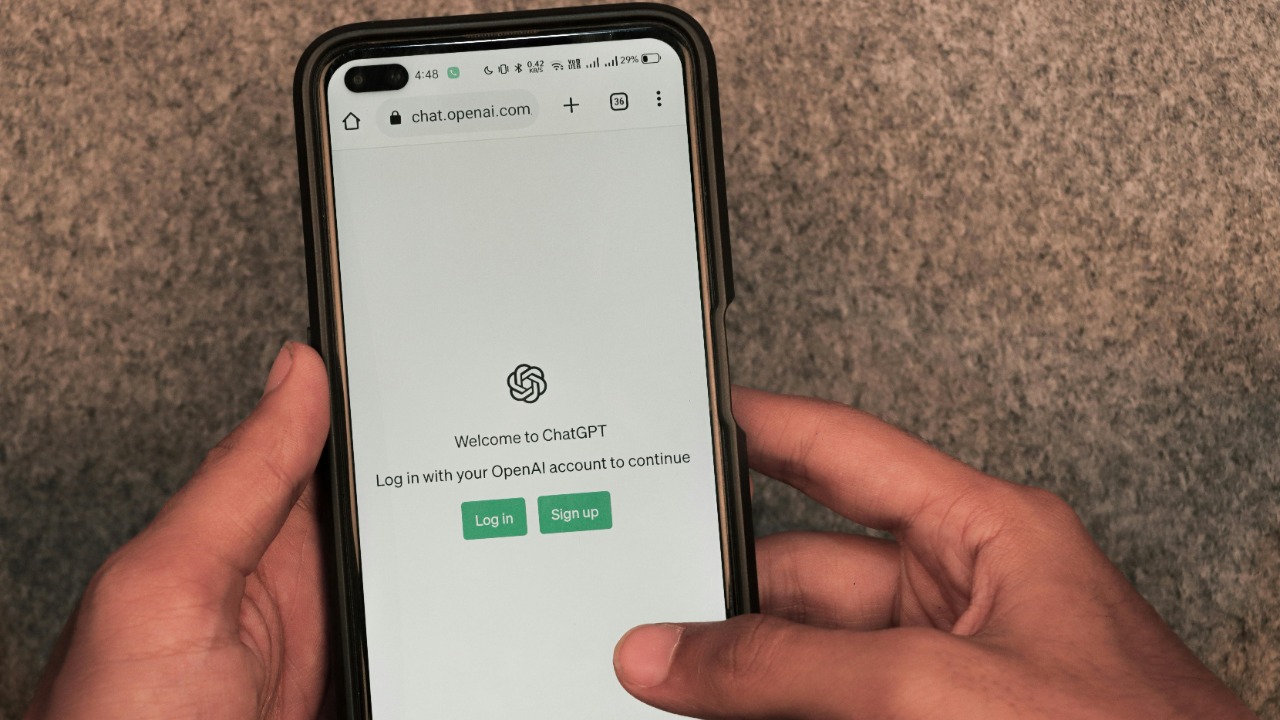
ChatGPT’s mobile app, developed by OpenAI, is experiencing a noticeable slowdown in both download growth and daily active users. This trend, highlighted in a recent analysis, underscores potential challenges in maintaining user engagement on the mobile platform despite its initial surge in popularity. The findings, reported on October 17, 2025, suggest that sustaining momentum in the competitive AI landscape may require strategic adjustments.
Overview of Download Trends
The initial launch of ChatGPT’s mobile app saw a significant surge in downloads, reflecting widespread interest and curiosity about the capabilities of AI chatbots. However, recent data indicates that this growth has tapered off considerably. According to the analysis, the app’s download rates have decelerated over the past few months, suggesting that the initial excitement may be waning. This pattern is not uncommon in the tech industry, where novelty often drives early adoption, but sustaining long-term growth requires continuous innovation and user engagement strategies.
Comparisons to earlier launch periods reveal a stark contrast in download numbers. During its initial release, the app experienced a peak in downloads, driven by both media coverage and word-of-mouth recommendations. However, as the novelty factor diminished, the download rates began to slow. This deceleration is particularly evident in regions where the app initially saw the highest adoption rates, indicating that market saturation may be a contributing factor. The analysis also highlights regional variations, with some areas experiencing more pronounced slowdowns than others, possibly due to differing levels of competition or market maturity.
Decline in Daily Active Users
In addition to slowing download growth, the ChatGPT mobile app is also seeing a decline in daily active users. The analysis provides metrics that show a reduction in daily use, with percentage drops in user engagement and retention figures. This decline suggests that while users may initially download the app, maintaining their interest and encouraging regular use is proving to be a challenge. Factors such as decreased session lengths and reduced frequency of app opens indicate shifts in user behavior that could be impacting overall engagement.
Understanding these shifts is crucial for OpenAI as it seeks to enhance user retention. The data suggests that users are not engaging with the app as frequently or for as long as they did initially. This trend could be attributed to several factors, including the availability of alternative AI applications or a lack of compelling new features to keep users engaged. Addressing these issues will be essential for OpenAI to reverse the decline in daily active users and sustain its position in the competitive AI app market.
Analysis Methodology and Data Sources
The analysis revealing these trends in ChatGPT’s mobile app performance utilized a range of tools and datasets to provide a comprehensive overview. The timeframe covered by the analysis extends from the app’s release to October 17, 2025, offering a detailed look at its performance over time. The data sources involved in tracking app performance are considered reliable, providing a solid foundation for the conclusions drawn in the report. These sources include app analytics platforms and market research firms that specialize in tracking mobile app trends.
By leveraging these tools, the analysis was able to identify key patterns and shifts in user behavior. The reliability of the data providers ensures that the findings are grounded in accurate and up-to-date information, making them a valuable resource for understanding the current state of the ChatGPT mobile app. This level of detail is crucial for stakeholders looking to make informed decisions about future strategies and investments in the mobile AI space.
Potential Factors Influencing Slowdown
Several factors could be contributing to the slowdown in download growth and daily use of ChatGPT’s mobile app. One significant factor is the increasing competition from other AI applications. As more companies enter the AI space, users have a wider array of options to choose from, which can dilute the market share of any single app. This competition is particularly fierce in regions where tech adoption is high, and users are more likely to experiment with new technologies.
Additionally, updates or feature changes in the ChatGPT app may also impact user retention. If updates do not meet user expectations or fail to introduce compelling new features, users may lose interest and turn to alternative solutions. Ensuring that updates align with user needs and preferences is essential for maintaining engagement and encouraging long-term use. OpenAI must carefully consider these factors as it plans future updates and enhancements to the ChatGPT mobile app.
Implications for OpenAI’s Mobile Strategy
The slowing trends in download growth and daily use have significant implications for OpenAI’s mobile strategy. As the company seeks to expand its presence in the mobile AI market, understanding and addressing these challenges will be critical. The current trends suggest that sustaining growth will require a focus on user engagement and retention, as well as strategic differentiation from competitors. OpenAI may need to explore new features or partnerships to reinvigorate interest in its mobile app and maintain its competitive edge.
In the broader industry context, these findings reflect the challenges faced by many AI mobile apps as they strive to maintain user interest in a rapidly evolving market. The analysis from October 17, 2025, provides valuable insights into the dynamics of the AI app landscape, highlighting the importance of continuous innovation and user-centric design. For OpenAI, leveraging these insights to refine its mobile strategy could be key to achieving long-term success in the competitive world of AI applications.
For more detailed insights, you can read the full analysis on TechCrunch.